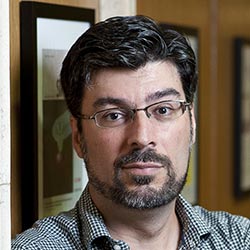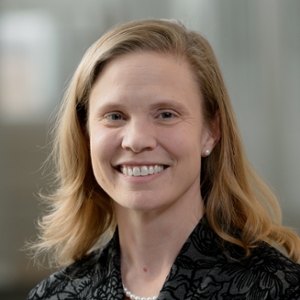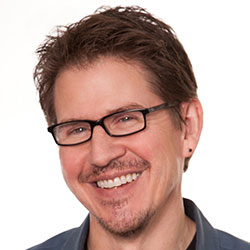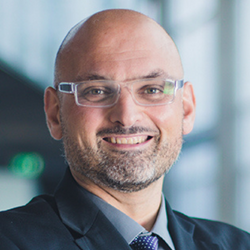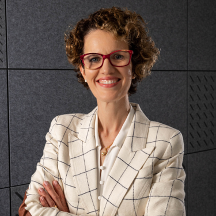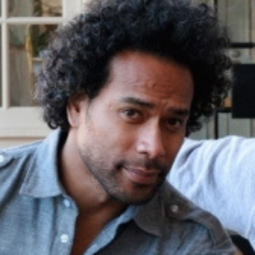Seminar on Imagining the Futures of Collaboration in Research

The age-old mores of the academy can seem to conspire against our collaboration. The image of a single researcher, working individually to produce the next epoch-making idea, persists to a remarkable degree in how students are trained and scholars are promoted.
Yet recent crises, from the COVID-19 pandemic to climate catastrophes, have made plain that the days of the lone genius are over. The problems are too complex and interconnected for any one person, discipline or locale to address them alone. The new genius is a collaborative genius.
The Northwestern Buffett Institute for Global Affairs has been developing new systems to catalyze collaborative research across borders of all kinds, but collaboration itself demands the university's attention and study during this moment of paradigm shift. To that end, we invited Northwestern faculty and graduate students to join us for an internal seminar on collaboration—an opportunity to step back and engage in dialogue across disciplines about the theory, practice, methods and stakes of new collaborative research. The seminar showcased some remarkable examples from across the Northwestern research community and facilitated collective thinking about future methodological directions and institutional transformations.
Seminar Format
Following two panel discussions, the seminar involved a Collaboration Café. These small group, informal discussions connected ideas for deeper insights and created momentum for future directions. No preparation was required to participate in the Collaboration Café. To encourage open dialogue, the seminar was not publicly broadcasted.
Agenda
Wednesday, March 1 from 1 – 5:30 p.m.
1:00 – 2:00 p.m. | Panel Discussion
2:00 – 2:15 p.m. | Coffee Break
2:15 – 3:00 p.m. | Panel Discussion
3:00 – 4:00 p.m. | Collaboration Café
4:00 – 4:30 p.m. | Wrap Up
4:30 – 5:30 p.m. | Reception
Panel #1 | 1:00 – 2:00 p.m.
Panel #2 | 2:15 – 3:00 p.m.
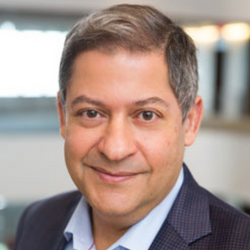 |
Noshir ContractorJane S. & William J. White Professor of Behavioral Sciences |
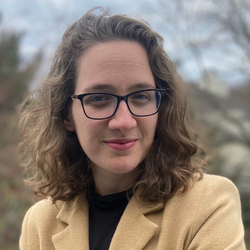 |
Lucy PartmanLecturer in Design and Innovation at Princeton University |
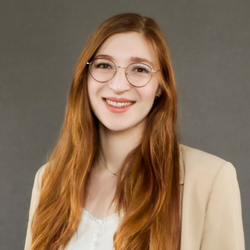 |
Emma ZajdelaPh.D. Candidate in the Department of Engineering Sciences and Applied Mathematics |
Globally, the nature, purposes, audiences and aims of scholarship are changing. The COVID-19 pandemic and global environmental crisis have hastened a transformation that was already well underway in institutional arrangements and disciplinary norms around how scholars work, learn, innovate and who they engage as thought partners. Practical experience with these crises has made plain that the days of the lone genius are over. The problems are simply too complex, and too interconnected—across disciplinary and cultural boundaries—for any one person or discipline to address them alone. The new genius is a collaborative genius.
What is the role of universities at such a cultural moment? How can it continue to be a site of discovery, expertise and cosmopolitanism? How can universities speed the imagination of new relations and norms that might produce meaningful ideas and reflections, impactful innovations, and just and fulfilling lived experiences? These are intellectual questions with political, economic and ethical consequences. They are questions of cultural imagination.
Around the world, universities remain remarkably local institutions. Likewise, intellectual silos still predominate. Students and scholars often have trouble hearing others who speak a different disciplinary language, or even members of their own discipline working in other countries or cultures. The image of single researcher, working individually to produce the next epoch-making idea, persists to a remarkable degree in how students are trained, and scholars are rewarded and promoted.
Nevertheless, new practices, new methods, new communities of thought and new criteria of evaluation are sprouting across the academic landscape. At this moment of paradigm shift, there is opportunity to take stock of the seismic shifts happening around the global university by putting these initiatives in conversation with one another.
This internal research seminar will provide an opportunity for dialogue among researchers at Northwestern about the theory, practice, methods and stakes of new collaborative research. It will showcase some remarkable examples from across the Northwestern research community and provide opportunities for collective thinking about future theoretical and methodological directions, political stakes and institutional change. In order to encourage risk-taking, the conversation will not be publicly broadcast, and the format will encourage participation.
—Annelise Riles
Executive Director, Northwestern Roberta Buffett Institute for Global Affairs
Associate Provost for Global Affairs, Northwestern University

